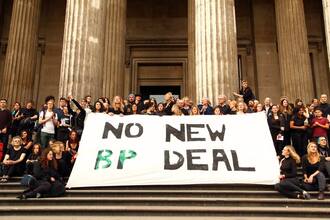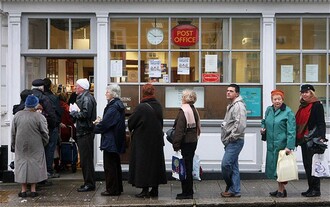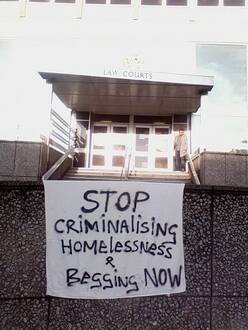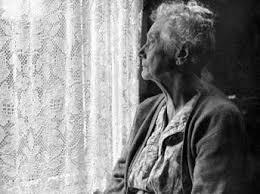-
Save West Berkshire librariesPublic libraries are currently under attack as never before. Quite apart from the imperatives of cutting council spending, some people question the point of public libraries. With the advent of the internet and the ebook, public libraries are described as out-dated and of being a luxury we cannot afford when other services are facing financial pressure. However, “The National Literacy Trust says that children who go to a library are twice as likely as those who don’t to read well. It is not just picking up a book. It is the social experience of reading, talking about the books, browsing, comparing what you have read with family and friends. Librarians open doors to new worlds, new possibilities. Children and adults do not just need information to thrive as thinking beings, but stories. Libraries are not in decline because of some natural, historic progression, but because of the monstrous cultural vandalism of savage cost-cutting." (Alan Gibbons) The community aspect of libraries, including storytimes/rhymetimes and free picture books is especially important for new mothers and their children. For many children the library is the only place they will ever be physically engaged with all the possibilities there are on the shelves. “That is why many small children’s activities are based in library buildings, a resource not to be found or replicated anywhere else. Having a space where the sole purpose is to engage with words and pictures, to create memories that last a lifetime, is a delight and not to be given away lightly.” (Ann Chambers) Even leaving aside books, the lack of access to the internet can reduce exam results by a grade. Public libraries can provide that access to children who do not have it at home. Borrowing of children’s books is increasing. Education is for adults and senior citizens too – senior citizens use libraries for education (notably, the U3A), students for quiet study, those new to computers for computer training. Libraries offer everyone a safe place to meet others, to use resources they could not otherwise afford and to strengthen the local community. The long-term effect of closing our libraries for a short-term monetary gain would be catastrophic for our towns and villages.2,674 of 3,000 SignaturesCreated by Lesley McEwen
-
Call on the Scottish National Portrait Gallery to cut ties with BP!We, the undersigned, care deeply about the arts, and equally the natural environment and the rights of humans around the world. We believe arts and cultural institutions should break their ties with oil companies such as BP, a company which has caused repeated environmental catastrophes, including the Deepwater Horizon spill, and been implicated in numerous human rights violations. Furthermore, BP is turning a profit on the continued extraction of dirty fossil fuels, pushing us towards runaway climate change, whilst lobbying against environmental laws and clean energy alternatives [1, 2]. By accepting sponsorship from BP, cultural institutions give the oil giant much-needed positive publicity, and help it to obscure the destructive reality of its activities with a veneer of respectability. At the same time, oil sponsorship taints the reputation of the institutions that accept it. We recognise the vital importance of arts funding, particularly after public funding cuts. However BP sponsorship provides less than 1% of the annual income of the British Museum, Tate, and Royal Opera House, and just 3% of the income of the National Portrait Gallery [3], yet BP are allowed to place their name and logo alongside the names of these institutions, on their website and in exhibitions (despite many artists and arts workers having strong views against such branding) [4, 5]. BP needs these institutions far more than they need BP. This is the 26th year that BP has sponsored the Portrait Awards, through an agreement with the National Portait Gallery (NPG) in London. Fortunately this agreement is due to end this year. The NPG could choose not to renew the agreement, and to find a more appropriate sponsor for the Portrait Awards. However, negotiations about renewal are already underway. The NPG will not drop BP as a sponsor without strong pressure from the public and the arts sector. We need to act now. Over its 26 years of sponsorship, BP has repeatedly caused great harms to the environment and people; it has been responsible for multiple deadly explosions and oil spillages, including that of Deepwater Horizon, which killed 11 people, decimated ecosystems and livelihoods in the Gulf of Mexico, and resulted in the largest corporate fine in history [6]. It has traded with oppressive regimes from Azerbaijan to Libya, and has even been implicated in torture in Colombia [7]. It has recently expanded into tar sands, an extreme form of energy production which contaminates water and tramples on indigenous rights [8]. Worldwide, fossil fuel companies have currently laid claim to five times the volume of oil, gas and coal that humanity can burn without causing dangerous and destructive levels of global warming [9] - despite this, BP has stated that it will continue to explore and exploit new reserves of oil and gas into the future. In 1989, the National Portrait Gallery ended its eight-year Portrait Award sponsorship agreement with tobacco company John Player [10]. It is time for this national cultural institution to show such moral leadership and forward-thinking once again, by cutting ties with BP. As a partner of the National Portrait Gallery, the Scottish National Portrait Gallery can influence this decision. We call on this respected national cultural institution to put pressure on the NPG to find a more appropriate sponsor, and to refuse to host the BP Portrait Awards until a new sponsor has been found. For more information, please see: http://bp-or-not-bp.org/ http://bp-or-not-bp.org/scotland http://platformlondon.org/p-publications/picturethis/ References 1. http://www.theguardian.com/business/2010/may/02/bp-deepwater-horizon-oil-spills 2. http://www.theguardian.com/environment/2015/sep/21/bp-tops-the-list-of-firms-obstructing-climate-action-in-europe 3. http://platformlondon.org/p-publications/artoilinfographic/ 4. http://fossilfundsfree.org/who/ 5. http://www.theguardian.com/artanddesign/2014/jun/24/no-oil-painting-bp-sponsorship-npg-portrait-award 6. http://www.theguardian.com/environment/2015/jul/02/bp-will-pay-largest-environmental-fine-in-us-history-for-gulf-oil-spill 7. http://www.theguardian.com/world/2015/may/22/gilberto-torres-survived-colombias-death-squads-now-he-wants-justice 8. http://environmentaldefence.ca/reports/canadas-toxic-tar-sands-most-destructive-project-earth 9. http://www.rollingstone.com/politics/news/global-warmings-terrifying-new-math-20120719 10. http://platformlondon.org/p-publications/picturethis/ 11. http://www.scientificamerican.com/article/climate-risks-as-conclusive-as-link-between-smoking-and-lung-cancer/176 of 200 SignaturesCreated by Claire Robertson
-
Sgrech Gwynedd1. Mae’r celfyddydau'n dod â phobl o bob oed at ei gilydd gan gyrraedd pawb 2. Mae gweithgareddau celfyddydol hygyrch ar lawr gwlad yn cael effaith uniongyrchol ar ansawdd bywydau pobl 3. Mae'r celfyddydau'n gwneud gwahaniaeth gwirioneddol i'n cymunedau 4. Mae'r celfyddydau'n cyfrannu'n helaeth at economi'r sir drwy gynnig cyflogaeth a chynhyrchu incwm 1. The arts bring people of all ages together from all walks of life 2. Accessible arts activities have a direct impact on the quality of people's lives 3. The arts make a significant difference to our communities 4. The arts make a significant contribution to the county's economy by offering employment and generating income1,129 of 2,000 SignaturesCreated by Gwynedd Greadigol

-
Prevent Closure Of GP Walk In Centre (Asda Hereford)The GP Walk In Centre located at Asda Hereford was originally opened in December 2009 and is used by many people. This walk in centre is a vital service to the community. It has been threatened with closure previously. In 2010 it was looking at being moved to the A&E department at the County hospital Glenda Vaughan-Powell (then Councillor) successfully campaigned to keep it open with a 700 signature petition handed to the Hereford Mayor, calling for the new centre to stay south of the river. We are again faced with possible closure. Please sign this petition thus adding your support to keeping this centre open in south Hereford.3,551 of 4,000 SignaturesCreated by Colin James

-
Stop the franchising of Lewes Crown Post OfficeLewes Crown Post Office is under threat. On January 19th Post Office Ltd announced plans to franchise 39 of its branches, and close three. Lewes Post Office is on the list of those to be franchised once a suitable retailer is found. This franchising is not for our benefit. Lewes is a busy Post Office. Customers will be all too clearly aware of the queues frequently experienced at peak times. Basically, the Post Office wants to sell the valuable Victorian building that our branch is housed in. Putting it into a local shop, will lead to longer queues, less services offered, and an all round inferior service, which will affect businesses and individual customers. Anyone who has visited Ringmer Post Office will be aware of this kind of service. Our Post Office has been on the same site for over 100 years. We have to stop this move. Thank you4,438 of 5,000 SignaturesCreated by Nicky Bryant
-
Stop Lincolnshire County Council cutting funding for local bus servicesLincolnshire is a very rural county, and not everyone has a car. A lot of people rely on their bus services to get in groceries, to go to work, or hospital. Transport is a vital link for travelling to work, to community services, such as health servicea and shops. They are also vital for enabling social contact with friends and families, especially for those who are disabled or elderly.4,170 of 5,000 SignaturesCreated by David Rimmington
-
U.K Disabled Veterans being asked to apply for Personal Independence Payments.It is important that all disabled veterans are supported by the government as it is the same government that placed them in areas of conflict that has resulted in them requiring financial supports as a result of the injuries they received while serving their country this including loss of mobility, loss of their ability to maintain their basic personal care, ie such as washing dressing, nutrition. Please support this petition to ensure that those U.K veterans who have been left permanently disabled do not also find themselves financially disadvantaged due to the these changes. Ian Duncan Smith needs to remove this process, provide a fair system and be forced to support disabled veterans and not just on Poppy Day. It will only take a few minutes of your time, but a life time of difference to improve the quality of life for disabled veterans.21 of 100 SignaturesCreated by Stewart White

-
Stop Criminalising Homelessness and BeggingIncreasing numbers of homeless people are being arrested for begging around the country. In 2013-14, 2771 cases were brought before the courts, a 70% increase on the previous year. Police use an archaic law which deems those found begging to be 'idle and disorderly'. Begging was made a recordable offence in 2003 against the strong criticisms of civil rights groups and homelessness organisations. Those prosecuted can be fined up to £1000 excluding court charges when found with just a few pennies. Those who have 'gathered alms' (that is, accepted money, food or other material goods offered to them) can be prosecuted under this same law with the same consequences. Some people are kept in cells for several nights. Although begging in and of itself is not an imprisonable offence, if the person is already on bail for another case a simple arrest for begging can lead to imprisonment. Those who are fined will inevitably have to beg more to pay off these fines, risking further arrests and fines, a punishment which stands out in its absurdity. Punishing the destitute for trying to survive is both costly and morally abhorrent. It is a waste of tax payers' money which is spent paying police who 'catch people out' in organised undercover operations, as well as on court cases to prosecute them. The minimum cost of bringing one case to the Magistrates' Court is £1000, meaning that in the year 2013-14, bringing begging cases before the courts cost the taxpayer at least £2.777 million. This is money that could be spent helping people rather than punishing them. Police also routinely move homeless people on under part 3 of the Anti-social Behaviour, Crime and Policing Act (2014) which gives police the power to confiscate property and exclude individuals from a particular area for up to 48 hours, with the officer also able to impose by what manner and route the person must leave. Failure to comply is a criminal offence which can result in a £2500 fine or 3 months in prison. Refusing to surrender your property is punishable by a fine of up to £500. The two conditions needed by officers to issue a dispersal order are firstly, that the constable has 'reasonable grounds to suspect that the behaviour of the person in the locality has contributed or is likely to contribute to (a) members of the public in the locality being harassed, alarmed or distressed, or (b) the occurrence in the locality of crime or disorder, and secondly, that the constable considers that giving a direction to the person is necessary for the purpose of removing or reducing the likelihood of (a) or (b)'. Given that begging is a crime considered 'idle and disorderly', the two laws in tandem essentially give police de facto power to exclude any homeless person from any area simply because they think it is likely that the person, being homeless, might beg there. The highly subjective definition of 'anti-social behaviour' as that which contributes or is likely to contribute to members of the public in the locality being harassed, alarmed or distressed reinforces this and even with the decriminalisation of begging, would still give police the power to move on any homeless person from any area simply because they believe doing so is necessary for the purpose of removing or reducing the likelihood of members of the public being distressed by seeing them. Seeing people forced to live on the streets is distressing to much of the public for good reason, but this compassionate distress means that under this definition a homeless person is considered to be exhibiting anti-social behaviour simply by existing visibly. The anti-social behaviour that causes the public distress is not caused by the homeless person however, but by the authorities' failure to provide people with shelter in a country that has 600,000 empty homes. As described by someone living on the street, being asked to move on when you have nowhere to go is like being asked to walk into a brick wall. These laws and their enforcement victimize vulnerable people who are already suffering the daily struggle of life on the streets or in insecure and unstable temporary accommodation. We believe that kicking someone for limping when it is you who cut off their leg is shameless and cruel. We believe that the government should be providing homes for the homeless, not handcuffs. We therefore call on parliament to repeal without replacement section 3 of the Vagrancy Act (1824), to amend part 3 of the Anti-social Behaviour, Crime and Policing Act (2014) to safeguard homeless people from its discriminatory use, and for an ultimate end to the criminalisation of homelessness by any and all other laws that may be newly concocted or dug up for this purpose. If you have an MP who may be sympathetic, get in touch with them to push this issue to parliament. We launched this petition at our demo at Brighton Magistrate's court on the 20th January.747 of 800 SignaturesCreated by J J
-
Keep Cheltenham's Family Tree center openThis family center brings together all different parents from many walks of life and helps support them through the good and the bad times. Provides a warm and friendly environment for parents and preschool children to attend 4 days a week. Without it, many parents would feel isolated.140 of 200 SignaturesCreated by Georgina M
-
End MPs' expenses!Why in 2016 when the government are looking to make cuts, should they be immune to the same austerity they force so many others to live with? Last year a reported 1.1 million people were forced into using food banks, this year they are trying to force our NHS to do more, with less. They have already attacked the disabled, and raised tuition fees for those looking to further their education while at the same time taking a pay rise. Why should they get to claim personal expenses? Especially when the average MP salary is £67,060. The UK average salary is reported to be £26,500, and yet you and I have to pay for our own food, our own travel expenses, as well as our own day to day living expenses. Whilst I understand that staffing costs make up nearly three quarters of the total MP expenses budget, staffing and office costs as well as reasonable long distance travel costs should be managed by the IPSA. Any other personal claims simply shouldn't be allowed. Let's stand together and remind the Government they stand in office to serve the greater goods best interest and not their own.403 of 500 SignaturesCreated by Craig Ashford
-
Stop unprecedented 10.6% cut to Welsh books industryThe future of publishing in Wales and with it ‘a distinctive literature from Wales’ could be under threat if the Welsh Government agrees a proposed 10.6% cut to industry funding. Wales’ small but vibrant and diverse publishing industry produces everything from Costa prize-winning poetry titles to young adult novels, from books about sporting and music legends to Welsh history and art, from prize-winning literature: fiction, biography, travel and memoir, academic titles and Welsh classics, to richly illustrated titles and books for children, in English and Welsh. Its independent publishing companies are spread across the country, providing skilled work for an estimated 1000 plus people, from authors to publishers, freelance editors, designers, illustrators, printers, booksellers and many others, often in areas of high unemployment. After a decade of standstill funding, grants to Welsh publishing in English will have been cut by 21% - £158,050 – in the last three years if these latest plans go through. Sign this petition to protect the future of Welsh literature and the Welsh books industry. Join in the conversation on Twitter by using the hashtag #WelshBooksMatter2,163 of 3,000 SignaturesCreated by Rosie Johns
-
DON'T ABOLISH ATTENDANCE ALLOWANCEThe government is drawing up plans to abolish attendance allowance (AA). Attendance allowance is a benefit payable to people over the age of 65 who have care needs, including difficulties with everyday tasks such as dressing and washing. This money can make all the difference between living and existing. Thanks to attendance allowance, older people with conditions like arthritis can pay for cleaners or someone to help with the shopping. It goes towards extra heating, or running a car. It’s not just about budgeting: they also gain some company from hiring help, and can pay for transport to get them out of the house. Without the benefit, many people will no longer be able to travel for their shopping, so they may be forced to use more expensive shops nearby. It will be harder for them to keep their homes clean. They’ll be faced with greater isolation. And loneliness and social isolation are harmful to our health: research shows that lacking social connections is as damaging to our health as smoking 15 cigarettes a day (Holt-Lunstad, 2010). All this may pose a hazard to both their physical and their mental health - and end up creating more of a strain on medical and social services. A 73 year old man I know was diagnosed with throat and larynx cancer and faced increasing immobility. He was unable to walk to local shops just 250 yards away without either stopping for a break every few yards or being taken by a friend. For longer distances, he had to travel by taxi. It was his attendance allowance which allowed him to pay for taxis and get out of the house in spite of his illness. Since then, he has been in hospital undergoing a tracheotomy and laryngectomy. He is considerably weaker than when he was admitted to hospital and will not be able to look after his home in the way that was once able. He will require the services of a cleaner and a carer to help him prepare meals, neither of which he would be able to afford without his Attendance Allowance. The government claims that local authorities will step in to fill the gap in provision created by scrapping attendance allowance. But in the face of sweeping cuts imposed on their budgets, local authorities may find that administering such an allowance is beyond their means. What guarantees will there be that local authorities will have sufficient funds to match the current rates? This is yet another swipe at the most vulnerable in our society, potentially depriving them of a quality of life that Attendance Allowance helps to provide. N.B.: Just to clarify this will not affect current claimants. The changes are planned to affect claimants from 2018 onwards.133,805 of 200,000 SignaturesCreated by denise fellows
Hello! We use cookies to improve your experience by providing insights into how the site is being used. Find out more.












